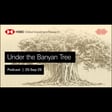Become a Creator today!Start creating today - Share your story with the world!
Start for free
00:00:00
00:00:01

The Macro Brief - A tale of two central banks
Liz Martins, Ana Madeira and Joseph Incalcaterra assess the diverging policy paths in the UK and Brazil - with one central bank hiking and the other cutting interest rates. Disclaimer: https://www.research.hsbc.com/R/51/gQpVrT2 Stay connected and access free to view reports and videos from HSBC Global Research follow us on LinkedIn https://www.linkedin.com/feed/hashtag/hsbcresearch/ or click here: https://www.gbm.hsbc.com/insights/global-research.
Hosted on Acast. See acast.com/privacy for more information.
Transcript
Introduction to HSBC Global Viewpoint podcast series
00:00:01
Speaker
Welcome to HSBC Global Viewpoint, the podcast series that brings together business leaders and industry experts to explore the latest global insights, trends, and opportunities.
00:00:13
Speaker
Make sure you're subscribed to stay up to date with new episodes.
00:00:16
Speaker
Thanks for listening, and now onto today's show.
00:00:23
Speaker
The following podcast was recorded on the 3rd of August 2023 by HSBC Global Research.
00:00:29
Speaker
All the disclosures and disclaimers associated with it must be viewed on the link attached to your media player.
Subscription encouragement for Macro Brief podcast
00:00:34
Speaker
You can now subscribe to this weekly podcast on Apple and Spotify, or wherever you get your podcasts, by searching for The Macro Brief.
00:00:40
Speaker
And don't forget to give us a rating.
00:00:43
Speaker
Now, on to the podcast.
Introduction to Macro Brief episode on central banks
00:00:48
Speaker
Hello and welcome to the Macro Brief.
00:00:49
Speaker
I'm Peter Stegall in London and I'm joined by my co-host Aline van Duyne in New York.
00:00:55
Speaker
It's been a tale of two central banks this week.
00:00:57
Speaker
The Bank of England implemented yet another rate hike.
00:01:01
Speaker
Meanwhile, policy easing has started in LATAM, with Brazil's central bank delivering a first cut in its cycle.
00:01:08
Speaker
We're assessing these diverging paths on today's podcast.
Analysis of Bank of England's interest rate hikes
00:01:15
Speaker
The Bank of England has just raised interest rates again with its 14th hike in under two years.
00:01:21
Speaker
It follows last week's hikes from the US Federal Reserve and European Central Bank.
00:01:25
Speaker
Liz Martins, Senior Economist, is here to discuss.
00:01:28
Speaker
Liz, welcome.
00:01:29
Speaker
Thank you.
00:01:30
Speaker
So Liz, you thought this would be a finely balanced decision between 25 and 50 basis points.
Reasons for smaller rate hike decision
00:01:36
Speaker
What swung it in favour of a smaller rise this time?
00:01:39
Speaker
Well, I think the big thing was the drop back in CPI inflation.
00:01:43
Speaker
So it came back down from 8.7% to 7.9%.
00:01:45
Speaker
So quite a big drop, more than most people were expecting.
00:01:50
Speaker
But as well as that, we're starting to see signs of the economy slowing down as well.
00:01:54
Speaker
So the PMI surveys were a bit weaker.
00:01:56
Speaker
Some of the housing market data have been a bit softer and consumer confidence dropped back as well.
00:02:02
Speaker
So I think the BOE is starting to think about the balance between those things and worry a little bit less about inflation and a little bit more maybe about growth.
00:02:10
Speaker
So the drop in inflation that you mentioned there, is that a sign that the hikes so far are working?
00:02:15
Speaker
Well not really actually because the hikes are really designed to target underlying inflation in the economy.
00:02:22
Speaker
So things like wage growth, core inflation, services inflation and those all came out pretty high in the most recent readings.
Inflation trends and housing market impact
00:02:30
Speaker
Core inflation down a touch but really much higher than it should be to be consistent with the Bank of England's target.
00:02:36
Speaker
So
00:02:37
Speaker
So far, the falls back in inflation don't really reflect the impact of monetary policy, although we may be starting to see the impact on things like the housing market and more broadly in the economy.
00:02:50
Speaker
So in housing, what is happening exactly?
00:02:54
Speaker
Well, of course, interest rates have risen and so have mortgage rates.
00:02:57
Speaker
So that means two things.
00:02:59
Speaker
One, if you are thinking about taking out a new mortgage, you know, you have to think about paying a bit more of your income towards that mortgage.
00:03:06
Speaker
And two, if you've already got a mortgage, you're facing your payments going up.
00:03:10
Speaker
as well.
00:03:10
Speaker
So what that all means of course is that demand for housing is a bit lower than it otherwise would have been and that's causing lower activity levels and just slightly some falls in prices although the falls have been relatively contained thus far.
End of Bank of England's hiking cycle
00:03:25
Speaker
So is the end of the hiking cycle now in sight and is it too soon to be thinking about or talking about cuts?
00:03:31
Speaker
Well, I think the end of the hiking cycle certainly is in sight.
00:03:36
Speaker
Our central case is that, look, the next meeting is going to be very finely balanced.
00:03:41
Speaker
We may get a final 25 basis points.
00:03:43
Speaker
We may not get even that.
00:03:45
Speaker
So our central case is going to be, yes, we do have one final one, but it is...
00:03:49
Speaker
you know going to be going to be another finely balanced decision as to whether there are going to be any cuts you know we're not forecasting any this year or next and actually I think the Bank of England endorsed that forecast in its communications at this meeting because it said we think current rates are restrictive and we're going to make sure that they are sufficiently restrictive for sufficiently long so they basically seem to be saying don't expect a reversal anytime soon
00:04:17
Speaker
And thinking about the run up to that next decision, what are the key data points that the policymakers will be looking out for?
00:04:24
Speaker
Yeah, so the next decision is on the 21st of September, and that gives us a good six-week stretch, lots and lots of data coming through, which could swing the balance in one direction or the other.
00:04:36
Speaker
I think most important by the bank's own guidance is going to be services and core inflation and wage growth.
00:04:41
Speaker
So we've got two inflation prints for July and August, and we've got two labour market prints, and the bank will put all of that together and see what it thinks when it makes this very finely balanced decision in September.
Review of Bank of England's forecasting processes
00:04:54
Speaker
So Liz, the Bank of England also recently announced that Dr Ben Bernanke, former chair of the US Federal Reserve, would be leading a review into its forecasting processes.
00:05:05
Speaker
What can we expect from that review?
00:05:07
Speaker
Yeah, and Governor Bailey said he was delighted to hear that Mr Bernanke will be leading this review.
00:05:13
Speaker
Look, we've had reviews like this in the past, even conducted by former Fed officials in the past, and they have led to concrete changes in the way the Bank of England goes about its business.
00:05:25
Speaker
So, for example, making the meetings slightly less frequent, recording the content of those meetings,
00:05:31
Speaker
meetings.
00:05:33
Speaker
So those kind of things.
00:05:34
Speaker
And it is possible that this review too will lead to some changes in methodology, perhaps inflation forecasting methodology, because that is the subject of the review here and why the Bank of England has kind of missed some of the big upside we've seen on inflation.
00:05:52
Speaker
However, we don't think this is going to be a big kind of game changer for monetary policy.
00:05:57
Speaker
It will be tweaks to the model, but probably won't make any near term changes.
00:06:02
Speaker
Liz, thank you very much.
00:06:04
Speaker
Thank you.
Brazil's central bank easing cycle
00:06:08
Speaker
This week, the Brazilian central bank started its easing cycle with a hefty 50 basis point rate reduction.
00:06:15
Speaker
Ana Madera, chief economist for Brazil and Joseph Incalcaterra, head of LATAM FX Strategy, join me now.
00:06:24
Speaker
So Ana, Brazil has some of the world's highest interest rates and also an economic track record that includes persistent inflation.
00:06:33
Speaker
Why are they cutting now?
00:06:35
Speaker
So in Brazil, the central bank started the hiking cycle a little bit earlier.
00:06:41
Speaker
So that was an advantage for them.
00:06:44
Speaker
And that made us believe that they would also start the cutting cycle a little bit earlier.
00:06:48
Speaker
And that has been the case.
00:06:51
Speaker
When we look at the trajectory of inflation, it is true.
00:06:54
Speaker
Brazil had inflation at very high levels in the past year.
00:06:58
Speaker
But throughout the first half of this year, inflation changed.
00:07:01
Speaker
Expectations have been coming down, driven by current inflation that has also been surprising on the downside in the past couple of data points.
00:07:11
Speaker
So that has helped in reducing the central bank forecast for inflation for this year.
00:07:19
Speaker
And the fact that the Monetary Policy Council also voted in favor of not changing the inflation target was also very positive for inflation expectations.
00:07:30
Speaker
And it helped inflation expectations at all horizons to actually move lower.
00:07:36
Speaker
When we look at the activity side, have to say that activity has not tumbled down.
00:07:42
Speaker
It is decelerating, yes, but it is decelerating rather orderly.
00:07:47
Speaker
So you have a scenario with current inflation coming down, inflation expectations
00:07:53
Speaker
also turning lower.
00:07:54
Speaker
Economic activity at the end of the day is holding off, but in relative terms, since the beginning of the year, it is losing steam.
00:08:03
Speaker
So we think that this is what led the central bank to actually start the easing cycle in August.
00:08:10
Speaker
Are the drivers domestic or is this reflecting the global picture?
00:08:17
Speaker
We think that the drivers are much more domestic.
00:08:21
Speaker
The global picture, of course, plays a role, but especially for the start of the easing cycle, especially for the moment that Brazil is in, which is the fact that fiscal risks have declined,
00:08:36
Speaker
as I mentioned, so the risk of potentially changing the inflation target not materializing and that leading to an important decline in inflation expectations, this was most likely what really drove the decision for the central bank to start the cutting cycle.
00:08:54
Speaker
And also recall that in terms of
00:08:56
Speaker
real yields, Brazil continues to have one of the highest amongst the other economies.
00:09:02
Speaker
So this is also one of the reasons why it makes sense for the central bank to start the cutting cycle.
00:09:09
Speaker
Looking ahead, you have an out of consensus call and expect quite sharp rate cuts ahead.
00:09:17
Speaker
What exactly are you expecting and what are some of the key risks here?
Forecasts and risks for Brazil's SELIC rate cuts
00:09:21
Speaker
Yes, indeed.
00:09:22
Speaker
We have an out-of-consensus call for the CELIC rate, so we expect it to come down to 11.50% by the end of this year and to end next year at 8.5%.
00:09:34
Speaker
It is right now below consensus call, but I have to say that after the decision of the central bank yesterday to cut more than anticipated, this is probably going to lead the focus survey to also reduce their expectations for the CELIC rate.
00:09:49
Speaker
Now, in terms of the risks that we see, well, I would say that it is important to focus how the profile of the current central bank might be changing, because we had two newly appointed members, for example.
00:10:02
Speaker
It was very clear that there was different views amongst the board members because the decision yesterday was heavily split, five against four.
00:10:10
Speaker
So this could be an indication that the central bank might be evolving towards a direction where it might be willing to allow a bit more inflation above the target.
00:10:20
Speaker
So that could be a risk for the long term of us seeing inflation above the 3% target for the long run.
00:10:28
Speaker
Thanks,
Strength of Brazilian Real and future outlook
00:10:29
Speaker
Anna.
00:10:29
Speaker
And Joseph, in terms of the currency side, the BRL, the Brazilian Real, has been one of the best performing currencies this year.
00:10:39
Speaker
Presumably, that reflects the level of interest rates.
00:10:42
Speaker
But just tell us a bit more about why the BRL has been doing so well relative to other currencies.
00:10:49
Speaker
So it's actually been many factors supporting both the BRL and Latin FX as a whole in outperforming broader emerging markets.
00:10:57
Speaker
And one of those factors has indeed been monetary policy, given high policy rates, in particular high real policy rates in Latin America compared to the rest of the world and compared to other emerging markets.
00:11:09
Speaker
But monetary policy isn't the only factor driving the effects.
00:11:14
Speaker
And indeed, as a result, we do not expect the start of easing cycles to actually mean significant effects on the performance.
00:11:21
Speaker
So for example, outside of real policy rates, which we expect to remain high actually compared to the rest of the YAM for Brazil, we also see very strong external data.
00:11:29
Speaker
a current account deficit that Anna's forecasting below 2% of GDP, a record trade balance and positioning indicators, which suggests that actually there's further support for the BRL ahead, especially given that the currency is still slightly undervalued, according to our estimations.
00:11:45
Speaker
So specifically, Joseph, do you think the BRL will continue to outperform?
00:11:51
Speaker
We think so, because looking forward, we expect this external data outperformance to continue.
00:11:56
Speaker
We think actually political risks are relatively muted in the second half of the year as Congress focus on the tax reform, as well as passing the fiscal framework.
00:12:05
Speaker
And as a result, we see further strength for the BRL.
00:12:08
Speaker
We have a year-end forecast of 4.5 against the US dollar, which means clear outperformance compared to the rest of emerging markets.
00:12:16
Speaker
So in general, we're quite bullish still on the Brazilian rail.
00:12:20
Speaker
Joseph and Anna, thank you so much.
00:12:23
Speaker
Thank you, Aline.
00:12:24
Speaker
Thank you.
Conclusion and podcast subscription reminder
00:12:28
Speaker
Before we go, just a couple of quick things.
00:12:30
Speaker
Don't forget that you can subscribe to the podcast on Apple and Spotify or wherever you get your podcasts by searching for The Macro Brief.
00:12:39
Speaker
And finally, HSBC clients can sign up to our Global Emerging Markets Conference, which is taking place online from the 18th to the 29th of September.
00:12:49
Speaker
Get in touch with your HSBC sales representative if you'd like to get your name down for that.
00:12:58
Speaker
So that's all from us.
00:12:59
Speaker
Thanks to Liz Martins, Anna Madeira and Josephine Calcaterra.
00:13:03
Speaker
And thanks to all of you for listening.
00:13:05
Speaker
We'll be back again next week.
00:13:27
Speaker
Thank you for joining us at HSBC Global Viewpoint.
00:13:30
Speaker
We hope you enjoyed the discussion.
00:13:33
Speaker
Make sure you're subscribed to stay up to date with new episodes.
















